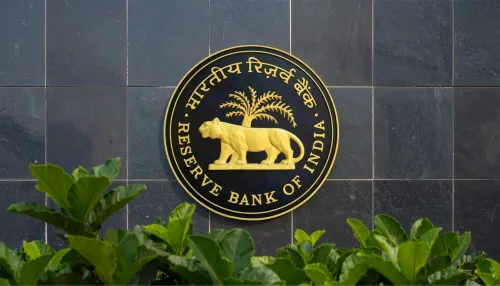127 Indian Firms Pledge to Achieve Net-Zero Emissions: Study

Mumbai, Dec 4 (NationPress) A total of 127 firms in India have pledged to achieve net-zero emissions, as highlighted in a recent study.
The research conducted by ICRA ESG Ratings reveals that nearly 7 percent of these corporations operate in high-emission sectors such as construction materials and mining, while the remainder are from industries like textiles, software, and services, which typically exhibit lower to medium carbon footprints.
This analysis on the commitments made under the science-based target initiative (SBTi) by Indian firms indicates a notable transition towards renewable energy in the power sector, especially among entities committed to achieving net-zero, leading to reduced emissions.
The SBTi is a voluntary initiative that allows companies to set science-based targets, which are then independently reviewed and validated. Commitments are made following specific sector-wise guidelines provided by the SBTi.
Globally, the UK leads with the highest number of companies committed to SBTi net-zero targets, while India stands in sixth place. In contrast, China has the lowest representation of firms with such commitments, despite being the largest emitter, according to the report.
“Our findings underline the significance of committing to net-zero emissions and illustrate how aligning with SBTi can enhance climate strategies, promote transparency and accountability, and emphasize the need for ongoing innovation and regulatory support,” stated Sheetal Sharad, Chief Ratings Officer at ICRA ESG Ratings.
“Such initiatives must recognize India’s role as a pivotal player in the fight against climate change,” she added.
Sharad recommends that when formulating guidelines for setting targets, attention should be paid to the infrastructure-led growth in developing nations like India, as this would motivate more organizations towards alignment.
Approximately 25 companies in India are from the power, cement, and mining sectors, pointing to a significant progression towards adopting renewable energy in the power sector, even as coal generation remains widespread.
In the cement sector, high emissions resulting from clinker production are being addressed via alternative fuels and carbon capture technologies.
The metal and mining sector exhibits varied emission levels, with a greater adoption of sustainable practices among companies committed to net-zero.
Moreover, the report indicates that only a small number of corporate entities have successfully reduced their absolute emissions by approximately 11 percent over the past six years, although they have managed to stabilize or slightly decrease their emission intensities.
It was noted that less than 10 percent of firms in the power, energy, and cement sectors—responsible for around 55 percent of India's total emissions—have pledged to achieve net-zero through SBTi, suggesting that this may not be adequate to meet the net-zero objective, as many high-emission companies are still not fully committed.









